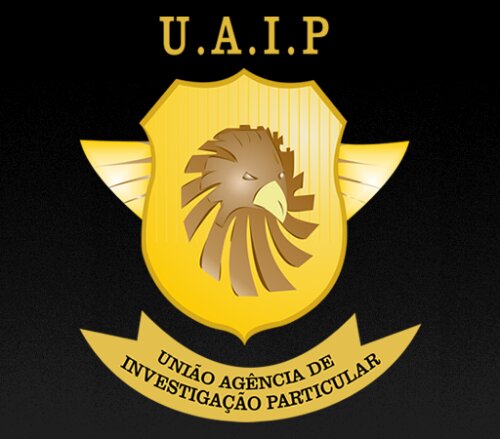Best Wage & Hour Lawyers in Petrolina
Share your needs with us, get contacted by law firms.
Free. Takes 2 min.
List of the best lawyers in Petrolina, Brazil
About Wage & Hour Law in Petrolina, Brazil
Wage and hour law in Petrolina, Brazil, is primarily governed by the Federal Consolidation of Labor Laws (Consolidação das Leis do Trabalho, commonly known as CLT). These laws set out the minimum requirements for working hours, rest periods, overtime pay, minimum wage, and other crucial elements regarding employment relationships. The municipality of Petrolina follows national regulations but may also have additional local norms or collective agreements that impact specific industries or roles. Ensuring fair pay and proper working conditions is a central aim of these laws.
Why You May Need a Lawyer
Many situations may create a need for legal advice in wage and hour matters. Some common scenarios include disputes over unpaid wages, overtime not being remunerated properly, incorrect record-keeping of worked hours, denial of breaks, or misclassification of workers as independent contractors when they should be regular employees. Employers may also require legal support to ensure they are compliant with all regulations and to navigate audits or disputes. A qualified wage and hour lawyer can clarify your rights, help negotiate settlements, or represent you in court or before labor authorities.
Local Laws Overview
In Petrolina, as in the rest of Brazil, key wage and hour laws address various aspects of the employment relationship:
- Minimum Wage: Employees are entitled to at least the national minimum wage, which may be supplemented by local or sector-specific agreements.
- Working Hours: The standard workweek is 44 hours, with a maximum of 8 hours per day and the possibility of up to 2 hours of paid overtime daily.
- Overtime Pay: Overtime must be paid at least 50 percent more than the standard wage unless a higher rate is set by collective agreement.
- Rest Breaks: Employees are entitled to one-hour lunch or rest breaks for shifts longer than 6 hours and shorter rest breaks for shifts of 4-6 hours.
- Weekly Rest: One full day of rest per week is compulsory, typically on Sundays.
- Record Keeping: Employers are required to track employees' work hours accurately, often via electronic or manual systems.
- Night Work: Night shifts (usually between 10 PM and 5 AM) require a wage increase of at least 20 percent.
- Collective Bargaining Agreements: Some industries in Petrolina may have agreements that provide additional rights or requirements beyond the CLT.
Frequently Asked Questions
What is the minimum wage in Petrolina?
The minimum wage is set by the federal government and may be supplemented by sectoral agreements. Always check the most recent published rate.
How many hours can I work in a day?
The standard daily shift is up to 8 hours, with a weekly maximum of 44 hours as per Brazilian labor law.
Am I entitled to overtime pay?
Yes. Hours worked beyond the standard must be compensated at a minimum of 50 percent above the regular hourly wage, or higher if established by collective bargaining.
What are my rights regarding lunch and rest breaks?
Employees working more than 6 hours per day are generally entitled to a minimum 1-hour break. For work between 4 and 6 hours, a 15-minute break is mandated.
Is night shift work paid differently?
Yes. Work performed between 10 PM and 5 AM must be compensated with a minimum 20 percent night shift differential.
How can I check if my employer is following the laws?
You can request your timesheets, payslips, and contract, and consult with a lawyer or the Ministry of Labor to ensure compliance.
Can I report violations confidentially?
Yes. You can file complaints anonymously with the Ministry of Labor or the Public Ministry of Labor (Ministério Público do Trabalho).
What should I do if I am not being paid correctly?
You should gather proof, such as timesheets and payslips, and consult a qualified lawyer for guidance on how to proceed legally.
What is a collective bargaining agreement and does it affect me?
It is a contract negotiated between employers and unions that may offer better conditions than the law. Its terms apply if your industry or employer is covered.
Can temporary or part-time workers access the same rights?
Generally, yes. Most wage and hour protections apply to all workers, including temporary and part-time employees, though some differences may exist.
Additional Resources
Several organizations and government bodies can provide information and assistance related to wage and hour issues in Petrolina:
- Ministry of Labor (Ministério do Trabalho e Emprego): A government body where workers can file complaints and ask questions.
- Public Ministry of Labor (Ministério Público do Trabalho): Investigates wage and hour violations and protects labor rights.
- Labor Unions: Many workers have union representation which can assist in disputes and provide information on collective agreements.
- Regional Labor Courts (Tribunais Regionais do Trabalho): Judicial bodies that hear and decide labor disputes.
- OAB (Ordem dos Advogados do Brasil): The Brazilian Bar Association can help you find qualified labor lawyers in Petrolina.
Next Steps
If you believe your wage and hour rights are being violated or you need help understanding your obligations as an employer, it is important to act promptly. Begin by gathering any relevant documents, such as employment contracts, payslips, timesheets, and correspondence with your employer. Then, consult an experienced labor lawyer in Petrolina who can review your case and guide you through the legal process. You can also reach out to the Ministry of Labor or your union for preliminary advice or to report issues. Choosing an attorney familiar with local labor practices can help ensure your rights are fully protected and improve your chances of a favorable outcome.
Lawzana helps you find the best lawyers and law firms in Petrolina through a curated and pre-screened list of qualified legal professionals. Our platform offers rankings and detailed profiles of attorneys and law firms, allowing you to compare based on practice areas, including Wage & Hour, experience, and client feedback.
Each profile includes a description of the firm's areas of practice, client reviews, team members and partners, year of establishment, spoken languages, office locations, contact information, social media presence, and any published articles or resources. Most firms on our platform speak English and are experienced in both local and international legal matters.
Get a quote from top-rated law firms in Petrolina, Brazil — quickly, securely, and without unnecessary hassle.
Disclaimer:
The information provided on this page is for general informational purposes only and does not constitute legal advice. While we strive to ensure the accuracy and relevance of the content, legal information may change over time, and interpretations of the law can vary. You should always consult with a qualified legal professional for advice specific to your situation.
We disclaim all liability for actions taken or not taken based on the content of this page. If you believe any information is incorrect or outdated, please contact us, and we will review and update it where appropriate.











